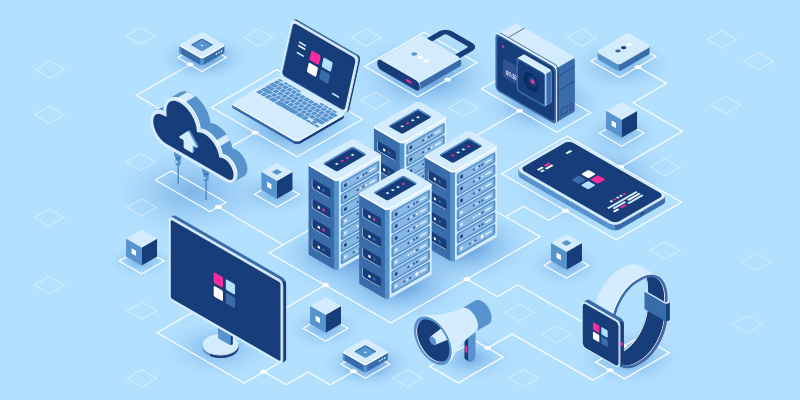How do data centers work – this is a question that is often asked and rarely answered in simple terms. Chances are, your business has a data center as part of its IT infrastructure. You may know a little about the needed security or that it is related to your computer system, but aren’t sure what exactly this technology does.
We’re going to explain what data centers are, how they work, and tell you a little about the different types of data centers that you may choose to use. Keep reading for a quick overview of data center operations and why they’re important to your business!
What Are Data Centers?
A data center is simply the central location of your business’ IT operations. It houses all of the equipment necessary for the processing and storing of data as well as related components such as routers, switches, servers, and telecommunications. It also is home to security software and other applications that are required for your daily business operations.
Although traditional data centers are located on-site, modern data centers may also be in a remote location or completely virtual.
How Do Data Centers Work?
Data centers operate similarly to a much larger-scale personal computer in that they provide network connections, internet access, and store information.
Every server in a data center has a certain amount of storage space, memory, and processing power; when multiple servers are used, different programs can help distribute the workload.
Each of the components in a data center is connected internally and externally by various cabling methods. This allows for all computers on the network to access and transfer information to one another – similar to how personal computers connect to the internet.
Types of Data Centers
There are four main types of data centers, with each offering different benefits and using different technology for their operation.
Cloud data centers are at the forefront of technology and are considered virtual data centers. This type of data center allows your business to access information via the internet and is usually hosted by a third-party provider.
Colocation data centers are a remote option for businesses. These centers rent space to companies for a monthly fee based on usage. Typically, this type of facility is ideal for companies that need storage, bandwidth, hardware, and physical security but have their own servers and cybersecurity.
Managed data centers are usually operated by a managed services provider for other businesses. When a company uses a managed data center, they have the option of leasing equipment instead of buying it, making this choice affordable.
Additionally, the maintenance of a managed data center falls on the provider. This means that a business won’t have to worry about testing equipment, inspections, or upgrades to hardware.
Lastly, enterprise data centers are most often built, owned, and maintained by a single company with the needs of their end-users in mind. This type of data center is usually housed on-site but may also have virtual or remote components included to better protect data.
Why Businesses Need Data Centers
Clearly, a data center is an integral part of any company’s IT infrastructure and allows for the daily operations of your business. However, the use of a data center also provides proper storage for your system backups and helps to ensure business continuity after a disaster.
Businesses that choose to use a data center will benefit from lightning-fast computing and processing speeds as well as better scalability as growth continues.
Many small business owners are under the assumption that a data center is an unnecessary expense. However, choosing to use this type of infrastructure can vastly improve connectivity, data security, and the overall speed of your information systems.
Choosing the Best Data Center Infrastructure
Because there are so many options when it comes to building and implementing data center infrastructure, many companies choose to speak with either an IT consultant or a managed services provider.
Both IT consultants and managed services providers can help you decide on the type of data center you need. However, managed services providers often have the added benefit of offering managed data centers as part of their service and can help you migrate to cloud technologies before the implementation of a cloud data center.
High Point Networks is a managed services provider that specializes in the designing, building, and implementation of data centers for businesses of every size. We can determine the best type of infrastructure for your organization and ensure that all of your IT needs are being met with the help of our professional, friendly, and knowledgeable team.
To gain an even better understanding of how data centers work, how they can benefit your business, and the correct type of data center solutions for your needs, contact High Point Networks today for a free consultation!

